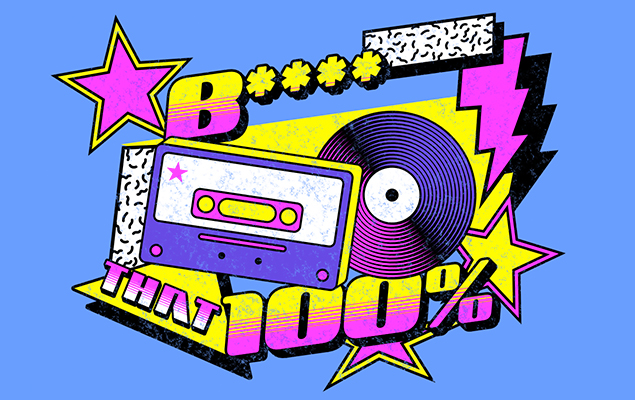In 2017, the popular singer Lizzo released the song “Truth Hurts,” which became a hit uniquely associated with her. In one of the song’s lines, Lizzo sings, “I just took a DNA test. Turns out, I’m 100% that b*tch.” Lizzo applied to register the phrase “100% That B*tch” as a trademark for merchandise encompassing various items of apparel. The protection will apply solely to use of the trademark on items of apparel, but not on other goods or services. This is despite the fact Lizzo herself did not actually invent the phrase, although she is the one who made it popular.
The United States Patent and Trademark Office (USPTO) denied her application and ruled that the phrase fails to function as a mark and therefore does not qualify for registration. The USPTO added that the phrase is a commonplace expression that is not specific enough to warrant a trademark. Trademarks are designed to identify the manufacturer of the product and associate it with the product. The USPTO ruled that the phrase does not grant Lizzo, as a singer, the right to appropriate it for her exclusive use. Lizzo refused to accept the ruling and filed an appeal
Commonplace Expression or Trademark?
The United States Trademark Trial and Appeal Board (TTAB) ruled that consumers encountering the phrase “100% That B*tch” associate it with Lizzo and her music, even though the public had used the term before. This is because prior to 2017, the year the song came out, use of the phrase was infrequent. The TTAB ruled that since the phrase does not convey a social, political, religious, or informative message, it qualifies for registration. These arguments differ from previous cases in which phrases such as “Think Green,” “Drive Safely,” or “I ♥ DC” were denied registration.
The TTAB also ruled that third parties who use the phrase only began doing so after the song’s publication. The phrase is so associated with the singer that it justifies granting it proprietary protection to the point of setting a precedent.
This precedent-setting ruling paves the way for the registration of phrases from popular songs clearly identified with the songwriters or performers as trademarks. This ruling will be of considerable help to people who have filed applications to register trademarks under similar circumstances, but were denied because the mark fails to qualify for registration. It will definitely make it easier for other artists and performers to claim protection under trademark law for marks that have become associated with them. The precedent set by this case could potentially lead to the granting of more trademarks for similar types of phrases in the future.
One Hundred Percent
In a way, this ruling strengthens the standing of celebrities, influencers, politicians, etc. They have very wide audiences and the ability to swiftly convey simple messages, thus turning a short phrase into a trademark that can later be printed and duplicated, for which they will hold the rights to. An average person who invents some phrase will find it difficult to register it as a trademark because he cannot influence such a wide audience and generate clear association between himself and the phrase. Lizzo did not invent “100% That B*tch,” but she successfully obtained trademark protection for it. It is reasonable to assume that if singer Mina Lioness, who invented the phrase but has a much smaller followers than Lizzo, had tried to register the same phrase as a trademark, the USPTO would have denied her application. Consequently, this precedent may create a gap between the identity of the applicant for registration and the protection granted to that specific mark. It may motivate creative collaborations between unknown people and celebrities whose status can afford them protection.
In Israel, as far as is known, no trademark has yet been registered on a phrase from a song, and the law has not yet addressed this subject. However, the rise of internet stars, such as artists, influencers, YouTubers, etc., may soon raise such questions for examination by the courts in various territories, including by the Registrar of Patents, Designs and Trademarks in Israel. Since such laws largely tend to “align” with similar legal systems in other countries, there is a legitimate expectation for the creation of some uniformity over time between these systems, also in relation to this ruling. This TTAB ruling may continue to undergo revisions, but if it becomes conclusive, it will also likely have an impact on legal practices in Israel.
For example, Israeli singer Anna Zak released her song “Go to Sleep” in early 2022, which rose to the top of the 2022 song chart on the “Galgalatz” radio station. One can definitely imagine her filing an application to register the phrase “Come and see what you missed,” taken from the chorus of that song, as a trademark. And it might even be granted. Why? Because “100% That B*tch” was not a particularly popular phrase before “Truth Hurts” was published, but, in the past few years, it has become a phrase uniquely associated with Lizzo. It is a phrase of a distinguishing nature, which qualifies registering it in the trademark register and receiving proprietary protection.
Two Systems
It is also important to consider that granting protection to parts of songs through trademark law, as the TTAB did in Lizzo’s case, creates a kind of “breach” of the existing boundaries between copyright law and trademark law, or at least some mix between them. This is because, traditionally, copyright laws protect literary works, including lyrics, and not trademark laws. The TTAB ruling could create clashes and uncertainty in the relationship between the two laws, in a manner which probably will bring the judicial instances to address it.
***
Barnea Jaffa Lande is at your service regarding trademark and other IP rights violations.
Adv. Ran Karmi is an associate in the firm’s Antitrust and Competition Department.


